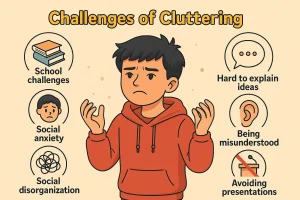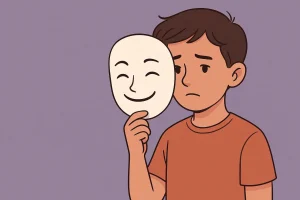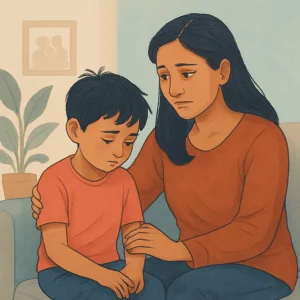Teaching WH Questions: 10 Fun and Simple Tips for Preschoolers
By Wellness Hub
Last Updated: February 18, 2025
Teaching WH Questions to preschoolers is a vital step in early childhood education. These essential questions—Who, What, When, Where, Why, and How—spark curiosity, enhance language development, and improve critical thinking skills. By integrating WH questions into daily routines, parents and educators can make learning fun, interactive, and engaging. At Wellness Hub, we provide expert resources and strategies to support teaching WH questions in a simple and effective way.
What are WH Questions?
WH questions form the cornerstone of early language education, encouraging preschoolers to explore and engage with their environment. These questions include:
- Who: Asks about people. (Who is your teacher?)
- What: Inquires about things or activities. (What is your favorite toy?)
- When: Pertains to time. (When is snack time?)
- Where: Questions location. (Where did you put your book?)
- Why: Seeks reasons. (Why do we wash our hands before eating?)
- How: Asks about the manner or process. (How do you tie your shoes?)
Also Read: Unlock Your Child’s Curiosity: The Power of WH Questions
Importance of Teaching WH Questions Early
Introducing WH questions early in a child’s education is crucial for both cognitive and linguistic development. These simple questions are powerful tools that help preschoolers build essential skills that go beyond basic communication.
Cognitive Benefits:
- Critical Thinking: WH questions encourage children to think deeply and critically. Asking ‘why’ or ‘how’ promotes reasoning and problem-solving skills.
- Memory Enhancement: Recalling information to answer questions like ‘who’ and ‘where’ helps improve memory and information retrieval.
Linguistic Benefits:
- Language Skills: Regular practice that enhances vocabulary and sentence structure. Children learn to form complex sentences and improve their grammar.
- Listening Skills: To answer a WH question, children must listen carefully. This hones their listening skills, which are vital for all areas of learning.
Tip 1: Use Everyday Situations
Integrating WH questions into daily conversations is a seamless way to enhance language development. By incorporating these questions into routine activities, children learn to think critically about their surroundings. Here are some practical ways to do this:
- During Mealtime: Ask, “What are you eating?” or “Why do you like apples?”
- On the Way to School: Inquire, “Who will you play with today?” or “Where is your friend today?”
- At Bedtime: Discuss the day with questions like, “How did you help your teacher?” or “What was the best part of your day?”
Tip 2: Interactive Storytelling
Children’s books are wonderful tools for interactive storytelling, allowing you to weave WH questions into the narrative. Here are a few books and questions to get you started:
- “The Very Hungry Caterpillar” by Eric Carle: Ask, “What did the caterpillar eat on Monday?” or “Why did the caterpillar eat so much?”
- “Where’s Spot?” by Eric Hill: Engage with, “Who is looking for Spot?” or “Where do you think Spot is hiding?”
- “Brown Bear, Brown Bear, What Do You See?” by Bill Martin Jr. and Eric Carle: Use questions like, “What do you see?” or “Why do you think the cat is purple?”
Tip 3: Incorporate Play-Based Learning
Play-based learning is an excellent method to encourage the use of WH questions. Here are some educational games and activities that can help:
- Treasure Hunt: Create a scavenger hunt with clues like, “Where will you find the next clue?” or “What color is the object you’re looking for?”
- Role-Playing: Set up a store and ask, “What would you like to buy?” or “How much does this cost?”
- Building Blocks: While constructing, ask, “What are you building?” or “Why did you choose this block?”
Read More: Why WH Questions Matter for Kids and How to Teach Them
Tip 4: Visual Aids and Props
Visual aids and props can significantly enhance the understanding and engagement of WH questions. Consider using:
- Flashcards: Show pictures and ask, “What is this?” or “Where do you find this?”
- Story Maps: Create visual storyboards that help children follow along and answer questions like, “Who is in this part of the story?” or “How did the character feel?”
- Props in Role-Play: Use items related to the role-playing game to ask questions such as, “What do you use this tool for?” or “Where does this hat belong?”
Tip 6: Technology Integration
In today’s digital age, technology plays a pivotal role in educational development. Interactive apps and videos are fantastic tools for facilitating learning about WH questions. Here are some specific ways technology can aid in this area:
- Interactive Apps: Wellness Hub offers apps designed specifically for language learning in preschoolers, which include games and activities focused on WH questions. These apps provide a fun, engaging way for children to practice these questions through interactive scenarios and quizzes.
- Educational Videos: Incorporating videos that pose WH questions throughout the story can help children learn in a visual and auditory way, reinforcing their understanding and retention of how to use these questions effectively.
Tip 7: Music and Songs
Music is a universal language and a joyful way to enhance learning. Songs that incorporate WH questions are especially valuable in teaching language skills to preschoolers. Here are a few examples:
- “Who Took the Cookie?” This classic song engages children in a fun mystery to solve using the question “Who?”
- “What Are You Wearing?” Set to a catchy tune, this song asks children to describe their clothing, helping them learn to respond to “What” questions naturally.
- “Old MacDonald Had a Farm” While singing about animals on a farm, children answer “What” and “Who” questions about the sounds animals make and who takes care of them.
Lear More: How to Teach WH Questions to Kids at Home – Fun & Easy Tips!
Tip 8: Group Activities and Discussions
Group activities and discussions provide a dynamic environment for practicing WH questions. By interacting with peers, children learn to ask and answer questions in real-life contexts, greatly enhancing their communication skills. Here are some effective group activities:
- Question Ball: Toss a ball around in a circle. Whoever catches it must answer a WH question from the teacher or another student.
- Mystery Box: Place an item in a box and have children ask questions to guess what it is, using only WH questions.
- Story Circles: Read a story as a group and pause to ask WH questions, encouraging children to discuss and predict outcomes together.
Tip 9: Regular Practice and Reinforcement
Consistent practice is key to mastering any skill, and learning WH questions is no exception. Integrating regular practice of these questions into daily routines not only reinforces learning but also makes it a natural part of a child’s day. Here are some effective strategies for regular practice and positive reinforcement:
- Daily Question Diaries: Encourage children to write or draw responses to a WH question each day. This not only practices their language skills but also helps them express themselves creatively.
- Positive Feedback: Always acknowledge correct answers and effort with positive reinforcement. Praise, stickers, or a simple thumbs up can boost a child’s confidence and motivation.
- Interactive Preschool Learning Activities: Use games and activities that require children to use WH questions in context. For example, playing a game where children must ask each other questions to find out about their favorite things or details about a shared story.
Tip 10: Engage with Educators and Therapists
The role of educators and therapists in teaching WH questions is invaluable. These professionals provide structured learning experiences and tailored feedback, making it easier for children to grasp and use these questions effectively. Here’s how Wellness Hub supports these efforts:
- Resource Provision: Wellness Hub offers a variety of educational materials and tools that educators and therapists can use to teach WH questions. These resources are designed to be engaging and effective, catering to the diverse needs of preschool learners.
- Training Workshops: We provide workshops and training sessions for educators and therapists to help them learn new techniques and strategies for teaching language skills, including the use of WH questions.
- Collaborative Learning Environments: By promoting collaboration between educators, therapists, and parents, Wellness Hub ensures that all parties are equipped to support the child’s learning journey. This unified approach helps reinforce learning and ensures consistent practice across different environments.
Conclusion
Teaching WH questions helps preschoolers think, talk, and explore the world around them. These simple questions build communication skills, boost confidence, and make learning fun. By using everyday conversations, games, and interactive activities, you can easily help your child master WH questions. At Wellness Hub, we offer expert-designed resources to support parents and educators in making learning engaging. Explore our interactive preschool learning activities and speech therapy tools to enhance your child’s language skills. Start today—because every question your child asks is a step toward better learning and communication!
Frequently Asked Questions:
1. What are WH questions, and why are they important for preschoolers?
WH questions include “Who,” “What,” “When,” “Where,” “Why,” and “How.” They help children learn about their world, improve communication skills, and encourage curiosity.
2. At what age should my child start learning to answer WH questions?
Children typically begin understanding and responding to simple WH questions around 2 to 3 years old. Early exposure through daily interactions supports this development.
3. How can I teach WH questions during everyday activities?
Incorporate questions into routines. For example, ask, “What are we having for breakfast?” or “Where are your shoes?” This makes learning natural and relevant.
4. What are some effective games to practice WH questions?
Engage in interactive preschool learning activities like role-playing, storytelling, or using educational apps that prompt children to answer WH questions.
5. How do visual aids help in teaching WH questions?
Visuals like picture cards or storybooks provide context, making it easier for children to understand and answer questions about who, what, where, etc.
6. Can music and songs aid in learning WH questions?
Yes, songs incorporating WH questions make learning engaging. Singing questions and answers helps reinforce language patterns in a fun way.
7. What should I do if my child struggles with WH questions?
Be patient and provide consistent practice. Use simple questions, offer choices, and celebrate small successes to build confidence.
8. How can group activities enhance my child’s understanding of WH questions?
Participating in group discussions or games allows children to hear and practice questions with peers, promoting social and language skills.
9. When should I seek professional help for my child’s language development?
If your child shows little progress with WH questions by age 4 or seems frustrated, consider consulting a speech therapist for guidance.
10. What resources does Wellness Hub offer to support teaching WH questions?
Wellness Hub provides a range of tools, including interactive apps, educational videos, and expert advice, to assist parents in enhancing their child’s language skills.
About the Author:
Rajini Darugupally
M.Sc., Speech-Language Pathologist (9+ years of experience)
Rajini is a passionate and dedicated Speech-Language Pathologist with over 9+ years of experience, specializing in both developmental speech and language disorders in children and rehabilitation in adults. Driven by a desire to empower each individual to find their voice, Rajini brings a wealth of experience and a warm, genuine approach to therapy. Currently, at Wellness Hub, she thrives in a team environment that values innovation, compassion, and achieving results for their clients.
Book your Free Consultation Today
Parent/Caregiver Info:
Client’s Details:
* Error Message









